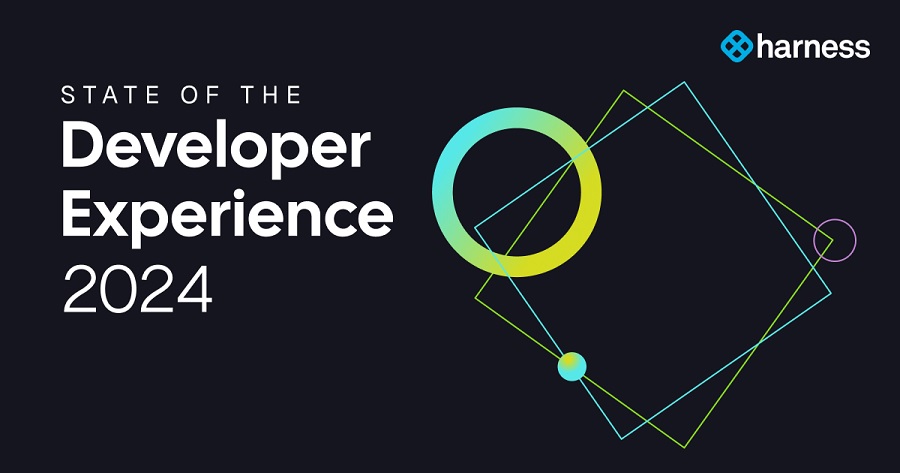StackGen has partnered with Google Cloud Platform (GCP) to bring its platform to the Google Cloud Marketplace.
In an era where efficiency is paramount and resources are increasingly scarce, developer burnout is emerging as a critical issue within the tech industry.
As a former engineer and machine learning architect, I'm not a stranger to the problems caused by developer toil. I've often worked through the night to deliver code or troubleshoot issues in production, and I've spent the last seven years of my career speaking with companies whose engineering teams face the same problems. The downstream impact of developer toil plagues nearly all companies, resulting in many developers having negative experiences in their roles and ultimately driving them to leave their positions.
The Harness State of the Developer Experience 2024 Report sheds light on this industry-wide problem. Based on a survey of 500 engineering leaders and practitioners, the report reveals alarming insights into the day-to-day obstacles developers encounter, including workflow inefficiencies, manual processes, and scope creep.
The most striking finding is the pervasive nature of burnout, which not only deteriorates work-life balance but also drives significant attrition within the industry. The cost of this attrition is staggering, contributing to an estimated $300 billion(link is external) annual impact on employers.

Burnout is Why Devs Quit
The report found that relentless workloads lead to burnout and are the primary reason most developers quit. More than half (52%) of developers say that burnout is the primary reason for their peers leaving their jobs!
This is compounded by the fact that nearly two-thirds (62%) of developers have experienced scope creep within their roles, and nearly a quarter (23%) of engineers work overtime at least half of the working days of a month! They're being asked to deliver more results to the business without additional resources or support.
Unfortunately, organizations are not able to onboard new hires quickly enough to provide respite for their workers. The survey found that new hire onboarding takes at least two months, according to 71% of respondents, leaving existing engineering teams to carry more of the burden in the short term.
Lack of Automation Leads to Developer Toil
The report also found that toil — the prevalence of manual, repetitive tasks that consume significant time and effort — significantly contributes to developer burnout.
Organizations are struggling to deploy code reliably and ensure an uninterrupted user experience. Nearly half of developers say they can't release code to production without risking failures, while 39% say their code fails to push to production at least half the time. Additionally, when that code needs to be rolled back, an astounding 67% of developers do so manually. This leads to a broad sense among 42% of the developer community that deploying code isn't fast or efficient.
While these technical pain points that developer toil presents are detrimental to your DevOps processes, the ultimate victims are your actual developers. Developer toil can profoundly impact developers' well-being, productivity, and work-life balance.
The Path to a Better DevOps Experience
Organizational leaders are responsible for making changes that reduce developers' workloads. This can be achieved by using automation tools and intelligent technologies to handle repetitive tasks, allowing developers to concentrate on more complex and rewarding aspects of their work. By taking these steps, companies can improve their operational efficiency and create a healthier, more sustainable work environment for their employees.
Addressing toil could result in a significant increase in productivity. The report suggests that this approach could lead to a 37% boost in productivity, reclaiming approximately 740,000 work hours annually for every 1,000 developers.
The stakes are high, and the potential benefits are significant. As the tech industry continues to grapple with the challenges of resource constraints and the demand for rapid innovation, addressing developer burnout through strategic modernization could prove to be a pivotal move.
Industry News
Tricentis announced its spring release of new cloud capabilities for the company’s AI-powered, model-based test automation solution, Tricentis Tosca.
Lucid Software has acquired airfocus, an AI-powered product management and roadmapping platform designed to help teams prioritize and build the right products faster.
AutonomyAI announced its launch from stealth with $4 million in pre-seed funding.
Kong announced the launch of the latest version of Kong AI Gateway, which introduces new features to provide the AI security and governance guardrails needed to make GenAI and Agentic AI production-ready.
Traefik Labs announced significant enhancements to its AI Gateway platform along with new developer tools designed to streamline enterprise AI adoption and API development.
Zencoder released its next-generation AI coding and unit testing agents, designed to accelerate software development for professional engineers.
Windsurf (formerly Codeium) and Netlify announced a new technology partnership that brings seamless, one-click deployment directly into the developer's integrated development environment (IDE.)
The Cloud Native Computing Foundation® (CNCF®), which builds sustainable ecosystems for cloud native software, is making significant updates to its certification offerings.
The Cloud Native Computing Foundation® (CNCF®), which builds sustainable ecosystems for cloud native software, announced the Golden Kubestronaut program, a distinguished recognition for professionals who have demonstrated the highest level of expertise in Kubernetes, cloud native technologies, and Linux administration.
Red Hat announced new capabilities and enhancements for Red Hat Developer Hub, Red Hat’s enterprise-grade internal developer portal based on the Backstage project.
Platform9 announced that Private Cloud Director Community Edition is generally available.
Sonatype expanded support for software development in Rust via the Cargo registry to the entire Sonatype product suite.
CloudBolt Software announced its acquisition of StormForge, a provider of machine learning-powered Kubernetes resource optimization.













